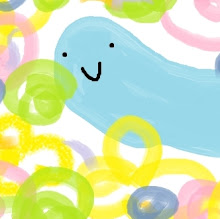So instead of this being a rather dull "blog"...
Finished reading Evelyn Waugh's Brideshead Revisited a while ago. It seemed a little slow at first, but once the story gets going, it becomes very interesting. If you read the reviews of it on Amazon, everyone pretty much gives the same, yet fairly accurate story synopsis. The majority of the story, with the exception of the Prologue & Epilogue, is set in the past; the Prologue & Epilogue are set during World War II, when Charles Ryder is a captain & ends up returning to Brideshead, a place he visited years ago when he was just a student at Oxford & he met Sebastian Flyte by way of Sebastian throwing up through his window.
Sebastian is from a wealthy family who owns the estate at Brideshead; he himself seems very eccentric, carrying around his teddy bear, Aloysius, & referring to him as if he were a person. He is also, as Anthony Blanche puts it (in trying to get Charles to turn against Sebastian), very charming, as is the rest of his family, who Sebastian won't let Charles meet. He eventually does, however, & Sebastian's life takes a drastic turn & he becomes an alcoholic. Charles & Sebastian both eventually go their own ways, but both leave Brideshead; Charles vows never to return.
Years later, Charles is married with children, but is unhappy in his marriage. he is also an architectural painter, & when coming back to England from a trip to South America, he meets Sebastian's sister, Julia, on the ocean liner for the return trip. Each eventually begins an affair with the other; Charles does eventually divorce his wife, but Julia is more reluctant because of her Catholic upbringing. They return to Brideshead, as does the youngest Flyte daughter, Cordelia, who tells Charles that Sebastian is living with monks as a sort of janitor (or something like that), & still drinks. Meanwhile, their father-- their mother died shortly after Sebastian ran off & after Charles left Brideshead-- returns from Venice with his mistress, where he has lived for years due to his hate for his wife, but he is weak & dying. Charles & Julia's relationship is rocky, especially when it comes to Lord Marchmain (the father) receiving last rites. Throughout the novel, the agnostic Charles rails against the Flyte's religion (he says to Sebastian at one point, "You can't believe all that," after asking him if the church tried to get them to believe "a lot of nonsesne"), even up to this point. Julia still sends for the Father when her father lays dying, & even Charles ends up praying, & Lord Marchmain crosses himself.
In the end, Julia decides she cannot marry Charles, & he leaves Brideshead once more, only to return a few years later in a state of disgrace, but still full of nostalgia.
And it's written so well. Other people speak of "Waugh's prose," even though it's not a poem. The narrative seems to flow because of how it's written, & it also really takes the reader from those carefree days when Charles felt he was close to a sort of heaven to the eventual decay of that Arcadia. It's really very sad to see Sebastian go from an outgoing kind of person to a depressed drunkard.
And religion obviously plays a large role in the story, chiefly because Waugh converted (& the Epilogue implies that Charles may have, as well). But one reviewer mentioned that it seems like religion is the main cause of the Flyte's sorrows. One said Sebastian became an alcoholic because he was homosexual, but I didn't get that at all. His & Charles' relationship was extremely well handled so that it could be taken either way, really. But it seemed to me that he became an alcoholic because of his family; whenever he had to stay at Brideshead, he always went & found ways of procuring alcohol, & then they tried to use other people to tie him down & act the way they wanted him to. And Charles snaps at Sebastian's older brother, Brideshead (whom is sometimes called Bridey), that maybe without their religion, Sebastian may have a chance at being a happy & healthy man. The pious Bridey, however, seems to take little or no notice. It seems strange, maybe like a paradox, how while religion seems to mess with all the characters, it also acts as something that many of them cling to.
And I agree a lot with Cordelia when she said that modern art is all bosh, because so much of it is. Bosh, that is.
Am apparently being kicked off the computer.
Winter group show
1 week ago
